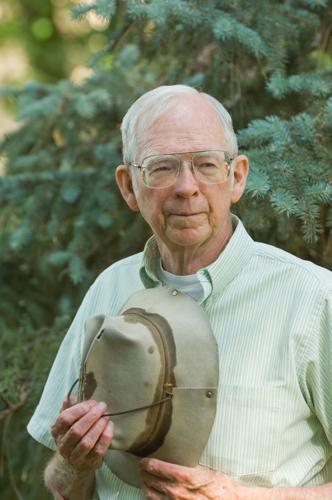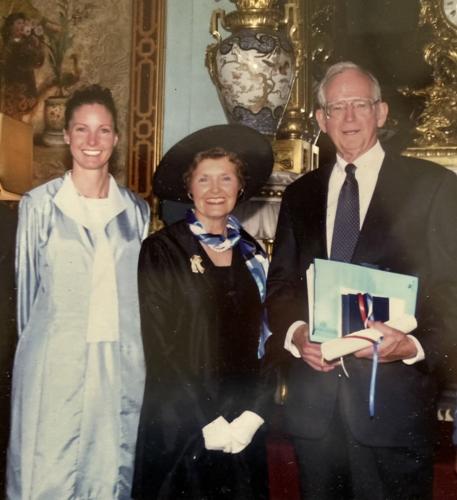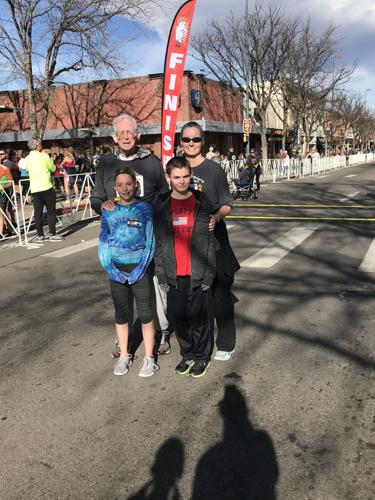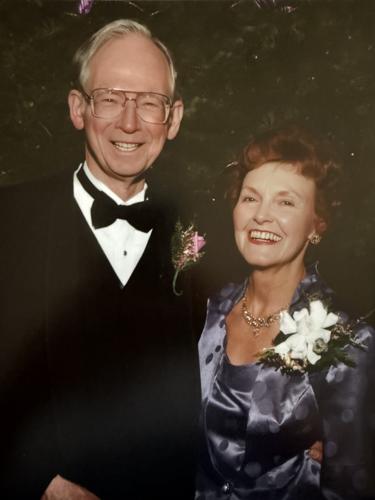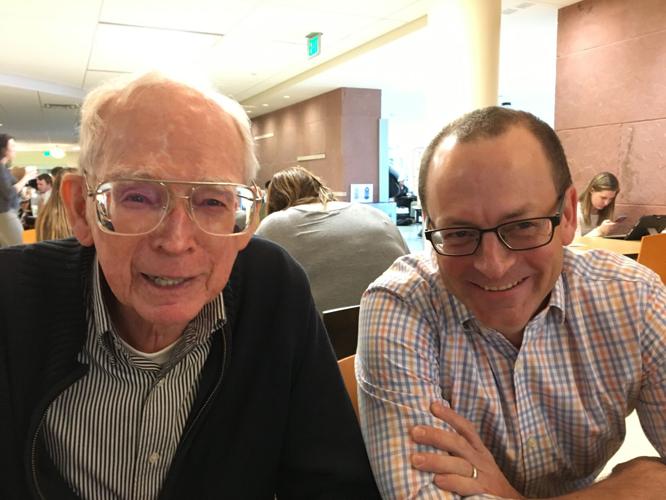CSU to honor ‘Father of Environmental Ethics’ Holmes Rolston III
FORT COLLINS – Holmes Rolston III, a former Colorado State University professor who recently died, used to share a story with his daughter Shonny Vander Vliet about a buffalo who fell into a geyser at Yellowstone National Park.
Vander Vliet, a Fort Collins resident, remembered that in the story some people were attempting to rescue the buffalo, desperately trying to pull it out of the geyser, because they pitied the animal.
But Holmes brought a different perspective of the scenario to the surface.
What about the fact that these people were depriving wild animals further down the food chain of buffalo meat to survive and sustain themselves?
“We as people often will do things that we think are either in our best interest or in the best interest of an animal, but maybe it’s not really,” Vander Vliet said. “Or maybe it has a bigger impact than just on that moment. And I think that’s when he started looking into that. That’s when he really started looking into the environmental ethics side of things and our place in all of that.”
A beloved father and an influential environmental philosopher who critically studied the relationships between nature, philosophy, ethics, science and religion, Rolston certainly left behind quite a legacy.
Dubbed the “Father of Environmental Ethics,” Rolston also earned recognition as the longest-serving distinguished professor at CSU and taught at the university for about 40 years. Some of the notable work he authored includes “Philosophy Gone Wild,” “Genes, Genesis, and God” and “A New Environmental Ethics: The Next Millennium for Life on Earth.”
He died on Feb. 12 at his home in Fort Collins, Colo., at the age of 92. A commemorative event is scheduled for late summer on CSU’s campus.
The new field of environmental philosophy
“He was one of the people responsible for starting a new field,” said Christopher Preston, a former student of Rolston and an environmental philosopher. “The field has grown exponentially since Rolston started it.”
In 2009, Preston published a biography of Rolston called “Saving Creation: Nature and Faith in the Life of Holmes Rolston III,” documenting his childhood years in Virginia, his Presbyterian ministry, and the trajectory of his career — with the hopes of capturing the complexity of weaving science, religion and philosophy together.
Rolston created a language of intrinsic value that plays a central role in the field of environmental ethics, according to Preston.
“That language will likely stay as it is an intuitive way to talk about caring for nature,” he said. “It also gave the field credibility in mainstream ethics. Intrinsic value, in Rolston’s eyes, peaks in wilderness areas, places where humans play little role.”
During his lifetime, Rolston was not only a founder of a field, but a mentor to many students — including Preston — and an author of a large body of work.
In 1990, Preston traveled from the United Kingdom to pursue a graduate degree in environmental philosophy. When he asked two U.S.-based professors for recommendations of where to study, they both directed him to Rolston in Colorado.
“Holmes was a quiet man, but less introverted than you might imagine,” Preston said. “He loved to crack a good joke and to hold the floor at a conference. He was ‘impish,’ looking for a joke. But he was also serious about study. He told me once that, even as a philosopher, I should learn more biology. He kept a very strict regimen for his own studies. It paid. He was more scientifically informed than most other environmental philosophers.”
And Rolston didn’t solely limit himself to environmental ethics, but also examined the intersections between religion and science.
“His understanding of contemporary ecology was profound, and so the intersection of that understanding of science and his deep and impassioned understanding of religion informed the way he approached questions of philosophy,” said Professor Ken Shockley, chair of the Philosophy Department at CSU. “So, I think he really had a striking position. It was contentious like all good philosophical positions are. Yet from this intersection of science, religion, and ethics he formed the groundwork for a field.”
Helped put CSU on the map
Rolston has been credited with helping place CSU on the map for environmental ethics, which was the only institution worldwide in 2016 with four authors who contributed to an environmental ethics handbook from the Oxford University Press.
During his career, Rolston won the 2003 Templeton prize from the Duke of Edinburgh at Buckingham Palace. He also presented the Gifford Lectures at the University of Edinburgh in the late 1990s and served on the Advisory Council of Messaging Extraterrestrial Intelligence.
He was born in Staunton, Va. on Nov. 19, 1932. The son of Mary (Long) Rolston and Holmes Rolston II, Rolston initially took the same path as his father and grandfather, both Presbyterian ministers. He obtained a divinity degree from the Union Theological Seminary in 1956.
On June 1 of that same year, he married Jane Irving Wilson and the couple had a son and a daughter together.
Vander Vliet described her father as a man who was humble, inquisitive, compassionate, hard working, educated, respectful of others’ opinions and fascinated with all things nature. Rolston would spend hours or days hiking, immersed in the outdoors.
“He was someone I always looked up to and didn’t want to disappoint,” Vander Vliet said of her father. “As an adult, I even made choices often based on that, wanting to be respectful. He lived his life as a very good person, so I really have tried to do things throughout the years that would honor that.”
Rolston’s wife, Jane died shortly after him in April, Vander Vliet confirmed. It was the support of her mother, whether it was proofreading his writings or cooking his meals, that made it possible for Rolston to focus on his passions of philosophy, environmental ethics, science and religion, Vander Vliet said.
In 1958, Rolston earned a Ph.D. in divinity from the University of Edinburgh in Scotland.
He went on to become a minister for the High Point Presbyterian Church in Bristol, Va. before his congregation ousted him in 1965, per Vander Vliet, due to disagreements over his environmental perspectives and interests.
This led him to pivot to academia and pursue a master’s degree in the philosophy of science from the University of Pittsburgh in 1968. After obtaining his degree, Rolston started working as an assistant professor of philosophy at CSU. In 1976, he became a full-time professor, earning the title of distinguished professor in 1992. He retired from CSU in 2008.
“He was one of the few living icons of the field,” Shockley said. “There are many of us working in it, but there are figures like John Muir and Aldo Leopold and Rachel Carson who shaped the way we think about the ethical dimensions of modern environmentalism, and Holmes Rolston III was definitely one of those. So, the shift from his voice as one with which we might engage to a voice of the past has been jarring. It’s a big deal for us in the field, a seismic change.”
A memorial service for Rolston was held on March 1 at his church, the First Presbyterian Church of Fort Collins. CSU will host a commemorative event for Rolston on September 19. Details for the event have yet to be finalized.
Before he died, Vander Vliet recalled one of the last conversations Rolston had with her son, about how his favorite flowers were the pasqueflower and columbines.
Earlier in his career, Rolston published an article titled “The Pasqueflower” in 1979.
“One of the things in the article about the pasqueflower is he relates it to religion and how it’s kind of the rebirth every spring, [of] new life,” Vander Vliet said. “He was getting ready to kind of be rebirthed. He was getting ready to meet the God he always loved.”





